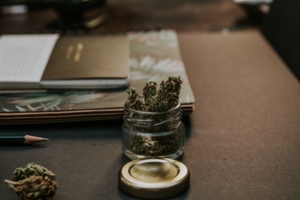Proposed Changes to Federal Laws Look to Remove Industrywide Marijuana Hurdles

Many states, including New York, have recently legalized recreational marijuana; however, the current federal banking laws prohibit most banking institutions from any involvement in the cannabis industry. Proposed amendments to the relevant federal statutes seek to remove this hurdle.
Despite the fact that marijuana is now legal, in some form, in more than thirty states, cannabis remains classified as a controlled substance under federal law. The Controlled Substances Act (“CSA”) is the common name of the Comprehensive Drug Abuse and Prevention and Control Act, which was enacted in 1970 to regulate and penalize the manufacture, importation, use, possession and distribution of certain substances. Marijuana is currently classified as a “Schedule 1 Controlled Substance” under the CSA.
Banking & Marijuana’s Status as a Controlled Substance
As a result of marijuana’s controlled substance status under federal law, many banks and credit unions are wary of the possibility of violating federal anti-money laundering and other laws by engaging in transactions involving the proceeds of federally illegal cannabis businesses. This has forced many marijuana firms, including New York State marijuana retailers, to operate on a cash basis, which creates a variety of logistical issues.
The primary federal law that affects the provision of banking services to marijuana or cannabis related businesses is the Bank Secrecy Act of 1970 (“BSA”). One of the functions of the BSA is to require banks to report suspicious activity that might indicate money laundering, tax evasion, or other criminal activity. These reports are known as “suspicious activity reports” (“SARs”). The federal anti-money laundering statutes make it a crime to knowingly engage in monetary transactions involving proceeds of certain unlawful activity, including the sale of marijuana. Under these laws, all proceeds generated by cannabis related businesses (even in states where cannabis is legalized) are unlawful, and financial transactions with such proceeds (including accepting deposits, making loans, and other banking services) may constitute illegal money laundering.
Federal Marijuana Law Amendment Proposals
Various forms of legislation have been proposed at the federal level to legalize marijuana and/or to give marijuana and cannabis businesses access to banking services. The Secure and Fair Banking Enforcement Act of 2019, known as the “SAFE Act”, which recently passed in the House of Representatives for the third time (it passed for the first time in September 2019), is currently gaining momentum in Congress, with eight Republican co-sponsors in the Senate.
The SAFE Act would offer protection to financial institutions providing banking services to cannabis related businesses and account holders affiliated with such businesses. If the SAFE Act passes, it would be followed by federal guidance detailing about how financial institutions can work with cannabis businesses within the confines of federal law and would effectively remove one of the significant issues currently faced by the marijuana industry.
House Republicans David Joyce and Don Young also recently introduced legislation to remove cannabis from the federal Controlled Substances Act. While this legislation does not appear to have the same level of support as the SAFE Act, it certainly seems to reflect the growing partisan support for legalization of marijuana at the federal level.
Take Action
If you are considering applying for a marijuana dispensary license in New York State, please contact Alexandra B. Becker, Esq. by e-mail (abecker@nhkllp.com) or phone (518.432.3188) for a no-cost consultation to see how the attorneys at Nolan Heller Kauffman may be able to assist.

FOLLOW US